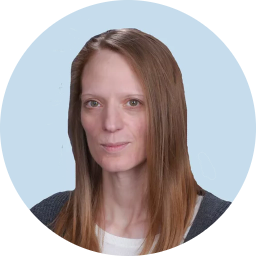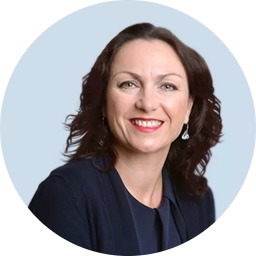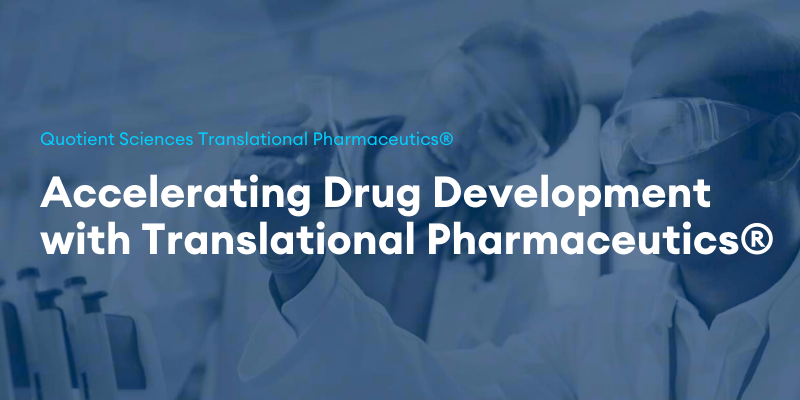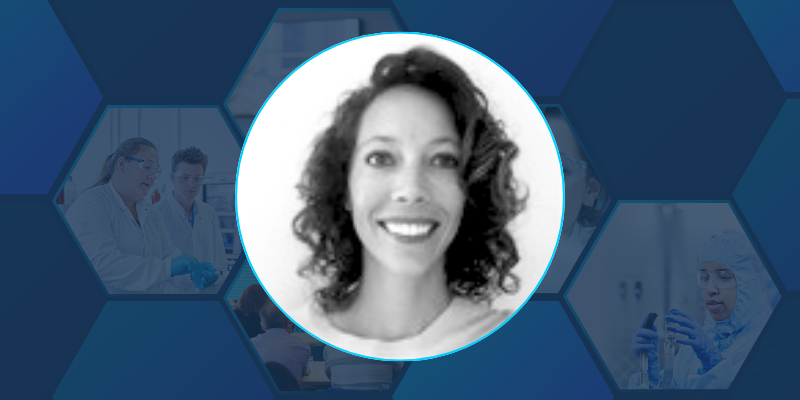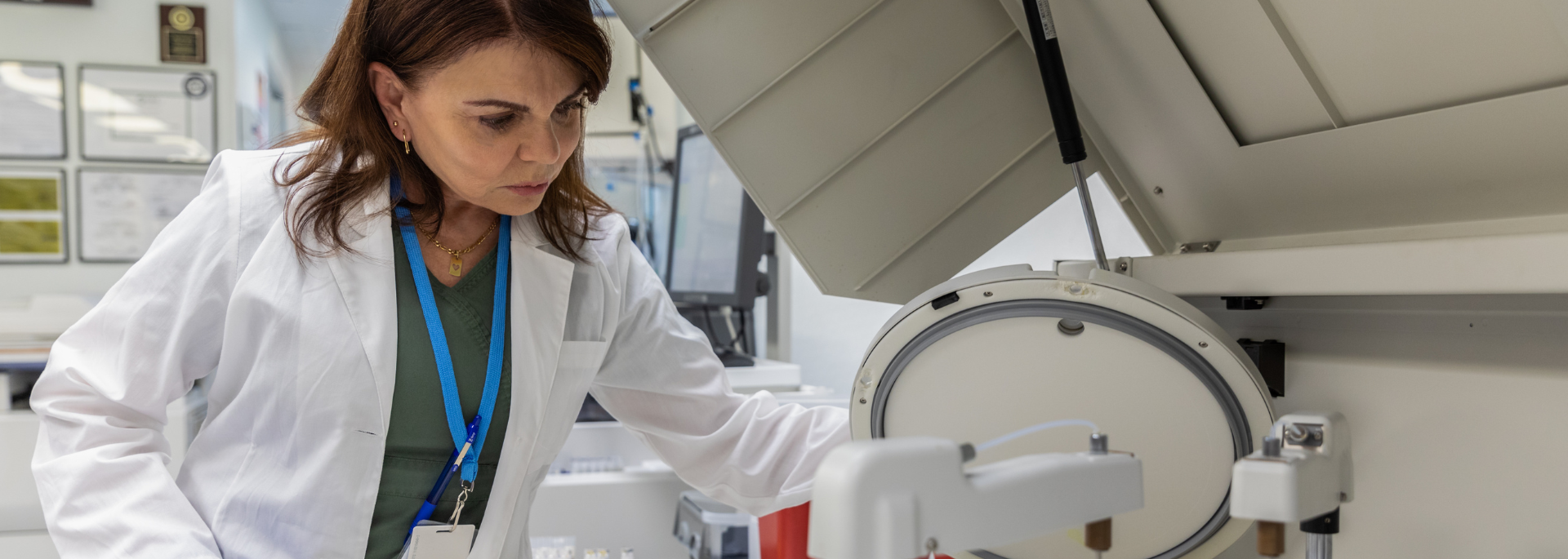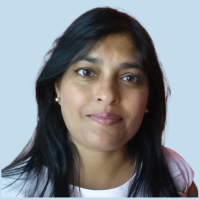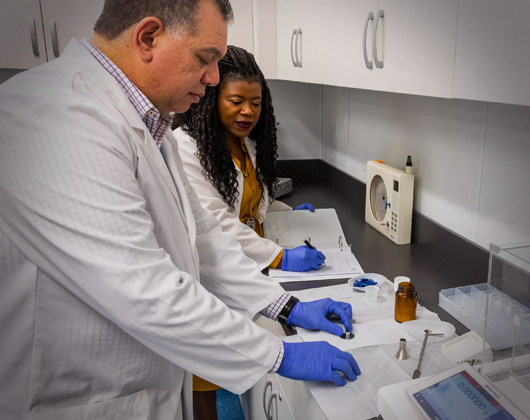Summary: Dr. Helen Baker, Director of Formulation Design, and Dr. Vanessa Zann, VP of Scientific Consulting - U.S. Translational Pharmaceutics® & Clinical Pharmacology at Quotient Sciences, discuss the difference Translational Pharmaceutics® makes in drug development. Translational Pharmaceutics® integrates drug product formulation, manufacturing, and clinical testing, reducing timelines and costs. They explain how Quotient Sciences U.S. facilities in Philadelphia and Miami conduct these programs, giving options to clients who choose to work with a Quotient Sciences Translational Pharmaceutics® program in either the U.S. or in the U.K.
How does Quotient Sciences conduct Translational Pharmaceutics® from our U.S. facilities?
For nearly 20 years, Quotient Sciences has been at the forefront of integrated CRDMO solutions through Translational Pharmaceutics®. This pioneering approach merges operational efficiency, scientific rigor, and clinical insights into a seamless program—managed under a single organization with a dedicated program manager.
Collectively, we’ve completed more than 500 Translational Pharmaceutics® programs worldwide for more than 100 customers. While the Translational Pharmaceutics® platform has been used in the U.K. for over 17 years, Quotient Sciences has also been successfully running Translational Pharmaceutics® programs in the United States for over eight years, with significant growth and investment in recent years.
Q&A with Dr. Helen Baker and Dr. Vanessa Zann on Quotient Sciences’ U.S. Translational Pharmaceutics® Capabilities
To discuss the evolution and impact of using Translational Pharmaceutics® programs to accelerate drug development for pharma and biotech clients in the U.S., we spoke with Dr. Helen Baker, Director of Formulation Design at Quotient Sciences, and Dr. Vanessa Zann, Vice President, Scientific Consulting, U.S. Translational Pharmaceutics® & Clinical Pharmacology.
Q: Translational Pharmaceutics® has been a core part of Quotient Sciences’ approach to drug development for nearly two decades. How has the U.S. offering evolved in recent years?
Dr. Baker: Our U.S. Translational Pharmaceutics® offering has developed significantly since we started our first programs, which are a partnership between our Philadelphia, PA and Miami, FL facilities to fully execute. Effectively, we have rebuilt our operations for Translational Pharmaceutics® in the U.S. to operate independently from traditional early and late-stage development or patient supply programs, such as clinical trial materials manufacturing.
Unlike traditional drug development, where drug product manufacturing and clinical testing are performed by entirely separate entities, Translational Pharmaceutics® maintains full control of the supply chain. Our CMC, quality, regulatory and clinical teams are fully integrated.
Dr. Zann: Translational Pharmaceutics® requires a different way of working to conventional CDMO or CRO approaches. We have a dedicated team focused on U.S. Translational Pharmaceutics® and have expanded the capabilities of our U.S. sites to support Translational Pharmaceutics® projects that includes:
- Dedicated CMC and project management leadership
- Dedicated formulation, QA, and analytical support
- Expanded R&D lab spaces with cutting-edge equipment
Additionally, we’re coming up on the five-year anniversary of the expansion of our Miami pharmacy compounding capabilities. Our Miami site is a clinical pharmacology facility specializing in Phase I clinical studies but also contains an integrated research pharmacy department with the ability to perform sterile pharmacy compounding for the in-house Phase I clinic. This includes several formulation types, such as drug in capsule steriles for IV, IM and SC administration, solutions and suspensions. Compounding of non-sterile drug products is performed in accordance with USP<795>. Pharmacy compounding gives added flexibility in how we can manufacture drug product to support FIH trials at our Miami clinic.
Q: How does Translational Pharmaceutics® benefit drug developers when compared to traditional approaches?
Dr. Baker: Translational Pharmaceutics® streamlines drug development by integrating drug product formulation and cGMP manufacturing with clinical testing into a single program.
Overall development timelines are accelerated and emerging clinical data is used to guide formulation and dose selection in real-time, improving decision making along the way. Translational Pharmaceutics® also allows for greater control of the supply chain and eliminates vendor management complexity for our clients when compared to having multiple, CRO and CDMO partners to coordinate.
Drug product batch sizes also have reduced stability requirements. We make smaller, 100- to 300-unit drug product batches with stability requirements of typically 7-14 days. The stability generated covers the clinical dosing period but also allows rapid progression into clinical testing and reduces API requirements. We don’t have a large batch of drug product manufactured and waiting to be dosed, at risk of being wasted if it is not needed.
Dr. Zann: For most customers, we’ve seen Translational Pharmaceutics® save an average of 12 months of time in drug product development and Phase I clinical testing. When factoring in the extra steps, time, and cost removed from the lifecycle of a drug, the actual savings using Translational Pharmaceutics® can be far greater—as the Tufts Center for Drug Development saw when they conducted their assessment.
We know other providers offer programs to integrate similar services, but they are not replacements for what Translational Pharmaceutics® can offer. In all cases, we have found these to be separate programs of work, with separate project managers coordinating services. These programs are not nearly as integrated as a Translational Pharmaceutics® program, with the different teams and capabilities we assemble to make these possible. In addition, not all companies are able to see the formulation development through to the in vitro characterization and clinical outcomes—with Translational Pharmaceutics®, we can.
Dr. Baker: With Translational Pharmaceutics®, everything is coordinated under one team, and there’s one program of work and one program manager who leads it. Our project managers are a lynchpin that make Translational Pharmaceutics® programs run the way they do, in the U.S. and in the U.K. They ensure that timelines are set and adhered to, monitoring client feedback along the way, so we can always ensure we are delivering against project milestones
Q: What investments have been made in the last 12-18 months to enhance Translational Pharmaceutics® capabilities in the U.S.?
Dr. Baker: We have made significant changes to our Philadelphia facilities (in Boothwyn and Garnet Valley, PA) to streamline our ways of working with dedicated teams and operational improvements as mentioned, which has taken place over the last year. Changes have also been made to what equipment and spaces are available for conducting U.S. Translational Pharmaceutics® programs to increase capacity and efficiency. Key investments include:
- Two dedicated R&D lab spaces for U.S. Translational Pharmaceutics® projects
- New equipment, including tablet presses, mills, and blenders and solubility enhancement technologies, including micronization and spray drying
- Semi-automated tablet presses, which has doubled our capacity compared to last year
These investments mean that we can develop and manufacture the full range of oral solid dosage forms—from simple, powder in bottle (PIB) formulations to more complex modified release formulations, or enabled formulations.
Q: How do Quotient Sciences’ U.S. Translational Pharmaceutics® programs support regulatory requirements?
Dr. Zann: Regulatory compliance is critical and our U.S. facilities have recently undergone successful regulatory inspections from multiple agencies, including the U.S. FDA, ANVISA (Brazil), and CFDI (China). This ensures that we can support both domestic and global development programs.
Also, as part of a Translational Pharmaceutics® program the Quotient Sciences team will author the IND module 3 drug product section for the IND opening/update.
Q: Can you share examples of recent Translational Pharmaceutics® projects?
Dr. Baker: We’ve had many exciting Translational Pharmaceutics® projects, particularly in modified release formulation optimization and solubility-enhanced formulations. One standout program that we conducted as a Translational Pharmaceutics® project between our U.S. facilities was a first-in-human study for a top five global pharma company, where we developed a granulate-in-capsule formulation for a SAD/MAD and food effect study. Among the benefits included a three-month acceleration to the clinic and significant API savings. This program demonstrated the power of the Translational Pharmaceutics® platform by enabling real-time formulation refinements based on emerging clinical data.
Dr. Zann: We’re also proud of our recent work with Ensyce Biosciences, where a clinical program was completed in Miami, supported by our U.K. sites for drug product formulation development and manufacturing.
Lynn Kirkpatrick, the company’s CEO, approached us to address formulation challenges for their modified release product, PF614-MPAR, in development as a potential breakthrough in treating severe pain. After consulting a traditional CDMO, Ensyce Biosciences was told by that provider that it would take over 8 months for an initial drug product prototype. In Part 1 of the study, we assessed 10 different formulation combinations to identify the unit dose.
Realistically, the company would have faced years of development to optimize its formulation and determine the required dose for the PF614-MPAR drug product, if multiple iterations needed to be manufactured sequentially, and the traditional formulation development approach was undertaken.
We were able to complete the work in a fraction of the time that was quoted by the other provider. The company has since moved forward with Phase II/III trials and is scaling for commercial manufacturing. We are proud to see what the product will go on to achieve and the impact it may have in addressing the ongoing opioid crisis.
Q: Who benefits most from U.S. Translational Pharmaceutics® programs?
Dr. Baker: We work with a range of clients, from large pharma to emerging startups. The simple answer is that many clients can benefit from the time and cost savings that Translational Pharmaceutics® brings to early stage drug development. We’ve applied it across indications and patient groups - in drugs that are targeted for use in oncology, rare diseases, and pediatrics, just to name a few.
We see many cases, like with Ensyce Biosciences, where clients want to move rapidly into formulation optimization in a more efficient, controlled way.
We also see many clients who have limited API availability, or cases where it is very costly to produce. As I noted before, Translational Pharmaceutics® puts us in control of the full supply chain, including the amount of drug product needed - and thereby, API used - for a clinical study.
Endevica was a peptide sterile formulation developed at Nottingham and then tech transferred to Miami for compounding, and according to the client due to small batch compounding with limited stability, the Translational Pharmaceutics model saved the client over 1 million dollars on the API synthesis cost.
Having the flexibility to conduct Translational Pharmaceutics® programs in the U.S. can be particularly valuable when an organization has U.S.-based grant funding, for example from the National Institutes of Health (NIH). In nearly all cases, this mandates that studies must be conducted in the U.S.
Dr. Zann: There are also significant benefits of using Translational Pharmaceutics® when a client has a challenging molecule, such as poor solubility or permeability. Our scientific team includes experts in formulation, biopharmaceutics, modelling and simulation, and clinical pharmacology so we can select the best strategy to overcome these challenges and design a development program to maximize the probability of success.
Likewise, using Translational Pharmaceutics® is ideal when a client aims to develop a complex drug product, such as a modified release (MR) formulation or an oral peptide. The correlation between preclinical animals and humans for immediate release products can be poor (Grass and Sinko, 20XX) and in the case of MR or oral peptides can be even greater, therefore the opportunity to optimize these drug products based on clinical testing with healthy volunteers is the preferred approach and likely to give the best opportunity for success.
Q: Can you tell us more about the wider team of scientific experts at Quotient Sciences?
Dr. Baker: Globally, we have a group of very talented drug development experts and apply our experience across a range of areas.
Ultimately, no matter where a customer chooses to work with us on a Translational Pharmaceutics® program, they benefit from our collective knowledge and an accelerated path to meet development milestones.
Meet the Team & Learn More at DCAT Week
For those interested in learning more about Translational Pharmaceutics®, we invite you to download our one-page summary to read more about the benefits of Translational Pharmaceutics®.
